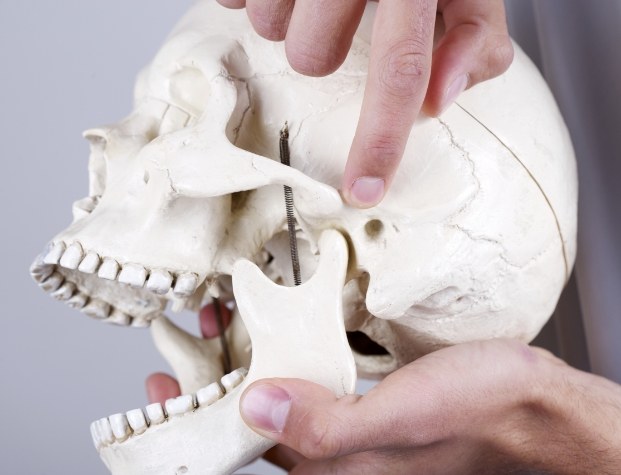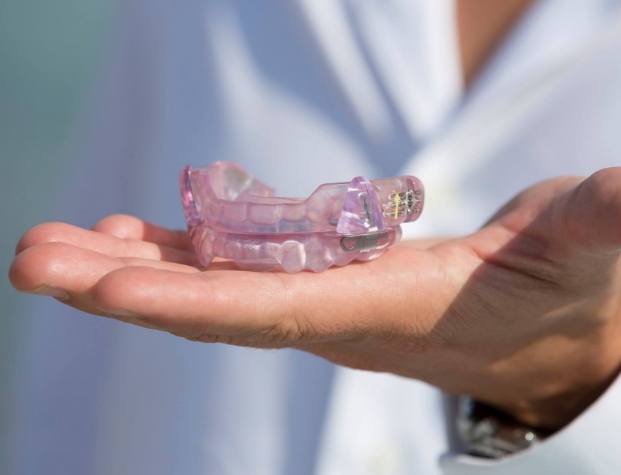Our Westerville dental office is in the same general location as the Westerville Community Center, on County Line Rd W between Africa Rd and N Cleveland Ave. We’re also less than five minutes west of N State Street.
TMJ Treatment – Westerville, OH
How Can You Stop Your Jaw Pain?

An occasional bit of pain in your jaw might not set off any alarm bells, but if it’s a constant problem, it could be the result of a TMJ disorder. TMJ is short for “temporomandibular joint”, which is the name of the joint that lets you move your lower jaw. Since the TMJ is a particularly complex joint, it’s prone to suffering from a number of issues, which can often lead to discomfort in your jaw as well as headaches. Please call Tzagournis Dental Group of Westerville if you suspect that you have a TMJ disorder; we’ll help you figure out what’s going on and how we can offer custom TMJ treatment in Westerville.
Why Choose Tzagournis Dental Group of Westerville for TMJ Treatment?
- Expertly Personalized Oral Splints
- Up to Date with the Latest Technology
- We Believe in Making Dental Care Accessible
Causes of TMJ Disorder

One common cause of TMJ disorder is bruxism. This is where you clench and grind your teeth at night, which can put a lot of pressure on your jaw joints. Bruxism tends to be common in people who suffer from high amounts of stress, and the condition is often associated with bite misalignment.
Of course, there are other possible causes of TMJ disorder, such as a displaced jaw joint disc, osteoarthritis, swelling, poor posture, and joint inflammation. Oftentimes, it’s not entirely clear what the underlying issue is.
Diagnosing TMJ Disorder

In order to narrow down what’s causing your jaw pain, we’ll review your dental history before performing a complete examination of your jaw and the rest of your mouth (as well as your head and neck). In many cases, an X-ray can be very useful in making a diagnosis. Please let us know about the symptoms you’ve noticed lately as well as any medications that you may have been taking.
If we find that a TMJ disorder is responsible for your pain, we can explain your options for treatment, which in many cases means getting a personalized occlusal splint.
Occlusal Splints

There are different kinds of occlusal splints that you can get depending on the specifics of your TMJ disorder. For example, if there’s a problem with the alignment of your jaw, you can get an occlusal splint that keeps it in a comfortable resting position. On the other hand, if you’re having problems with bruxism, you can use a splint to make sure that your upper and lower rows of teeth stay separated from each other, thus keeping your TMJ (and your teeth) safe from habitual grinding and clenching.




